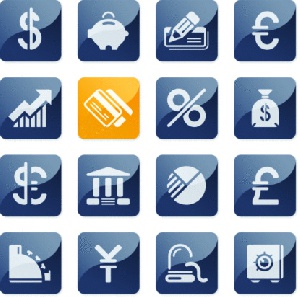Seventy percent of Ghanaian adults do not have a bank account -- not only because of poverty, but also because of the cost, travel-distance, and the amount of paperwork involved in opening one, says the World Bank.
This is in spite of the fact that there are 26 universal banks, and over 110 community and rural banks currently operating across the length and breadth of the country.
Even though only 30 percent of Ghanaians have bank accounts, the figure is comparatively higher than the sub-Saharan Africa average of 24.1 percent, and also that of the lower-middle income countries’ average of 28.1 percent.
According to the report, which was launched at the World Bank/IMF Spring Meeting in Washington DC, women are particularly disadvantaged when it comes to accessing financial services.
Only 37% of women in developing countries have an account, whereas 46% of men do. That gap is even bigger among those in poverty: Women living below US$2 a day are 28% less likely than men to have a bank account.
In Ghana only 27.1 percent of women have access to bank accounts, whereas 31.8 percent of men have one.
Out of the total number of bank account holders in Ghana, 52 percent live in the urban areas.
In spite of efforts to decongest the banking halls with the installation of automatic teller machines (ATM) at vantage points in some areas, people still use bank tellers as the main mode of bank deposits and withdrawals.
The report showed that 94.3 percent of account holders use the bank tellers as a mode of deposits, while 71.2 percent use them to withdraw cash.
What this also means is that only 24 percent of account holders make their withdrawals from the ATMs.
It also came to light that the main reason people open bank accounts is to receive their remittances; other reasons are to receive salaries and government payments, sending remittances, and for business purposes.
While 11.7 percent of account holders use their accounts to receive remittances, 11.2 percent of account holders open accounts so that they could receive their salaries, while 7.2 percent use their accounts to receive government payments.
Money transfers through mobile phones is a form of increasingly popular non-traditional banking that often doesn’t require users to travel or set up an account at a bricks-and-mortar bank.
Such mobile banking, which allows account holders to pay bills, make deposits or conduct other transactions via text messaging, has expanded to16% of the market in sub-Saharan Africa where traditional banking has been hampered by transportation and other infrastructure problems.
Kenya, where 68% of adults report using a mobile phone for money transactions, has seen particularly impressive growth in this market.
On the use of mobile phones for payments, Ghanaians rely very little on this medium. The report said only one percent of the adult population use mobile phones to send money while only 1.5 percent of adults use mobile phones to receive money, and only 0.9 percent use the mobile phone to pay bills.
With regard to savings, only 36.6 percent of Ghanaians saved any money in the past year while 16.5 percent saved at a formal institution in the past year, and 9.5 percent saved using a savings club. Also, only 27.5 percent saved for emergencies in the past year.
The 2011 survey of about 150,000 people in 148 countries finds that more than 75 percent of adults earning less than US$2 do not use a formal financial institution.
Worldwide, 22 percent of adults report having saved at a formal financial institution in the past 12 months, according to the World Bank's Global Financial Inclusion Database, or Global Findex.
Findex provides the most comprehensive picture of how people around the world save, borrow, make payments and manage risks. Even among those who do not have a formal bank account, only 43 percent use their account to save.
Yet 61 percent of account holders worldwide use their account to receive payments from an employer, the government or family-members living elsewhere.
Financial inclusion, or being "banked", can be transformative as it allows poor people to build a more secure future. The ability to save and borrow allows them to build their assets, start a business, invest in education, establish a credit rating, and eventually own a home.
“Nearly two-thirds of the unbanked cite poverty as the obstacle to financial access, but about a third also blame the cost of opening and maintaining an account or the banks being too far away, which means long bus rides for many,” said Asli Demirguc-Kunt, the Bank’s director of development policy and chief economist of the Finance and Private Sector Network.
"Providing financial services to the 2.5 billion people who are ‘unbanked’ could boost economic growth and opportunity for the world's poor,” said World Bank Group President Robert B. Zoellick.
“Harnessing the power of financial services can really help people to pay for schooling, save for a home, or start a small business that can provide jobs for others.
This new report on the world's 'unbanked' makes the case: the more poor people are banking today, the more they are banking on their future."
General News of Monday, 23 April 2012
Source: BFT













